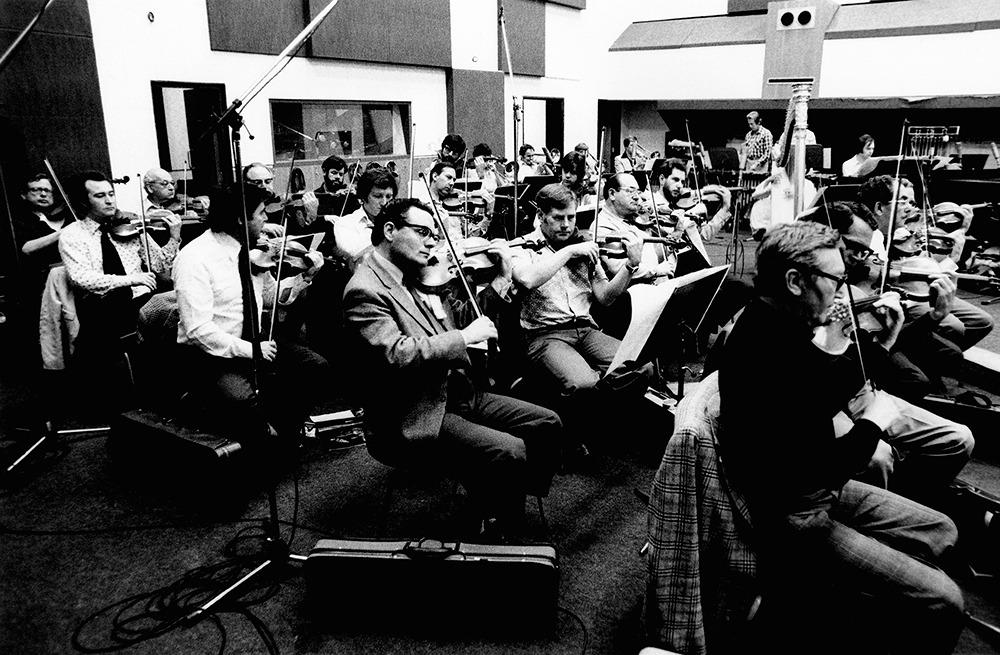Readymade soundtracks for imaginary films
A recording session for the KPM music library.
Commissioning an original score from a composer is a slow, expensive process. So much of the music we hear in film, TV, radio and podcasts is actually what’s known as “library music”: pre-made stock music, offered for relatively low prices by companies called production music libraries.
Library music may seem anonymous and generic. But after a rediscovery, the records from library music’s golden age are now treasured by collectors.

David Hollander’s book “Unusual Sounds: The Hidden History of Library Music” chronicles that artistic peak of the ‘60s, ‘70s and ‘80s through interviews with dozens of composers. During that era, brilliant musicians — based primarily in Europe — churned out library records by the thousands, spanning every conceivable genre. And collectors are still trying to document them all.
“I’m finding out about library LPs I’ve never heard of every single day,” says Hollander. “I mean, honestly, it appears to be endless.”
These records were never sold to the public, but rather were offered directly to filmmakers for demonstration purposes. The libraries gave titles to the songs and put them on albums with broad themes (e.g. “Speed and Excitement,” “Friendly Faces”). But editors were free to use the music any way they wanted, so long as they paid a fee. In practice, that meant the music was placed in contexts the composers never dreamed of —from kung fu movies to sports broadcasts to porn.
One of the UK’s most successful composers from that period was Keith Mansfield. Although he never became a household name, his music has been ubiquitous on both sides of the Atlantic — playing in cinemas before a movie starts, or heralding the beginning of Wimbledon. But he says the musical variety offered by writing for libraries far outweighed the lack of celebrity.
“It may not have had the glamor of being a film composer or being a pop star or whatever, but that’s not what I wanted,” Mansfield says. “I just wanted the opportunity to be all the kinds of people I could be as a composer. I could be serious, I could be humorous, I could be evil, I could be nice and innocent, I could do angry music, I could do all sorts of things. So that was very fulfilling as a composer. And it kept me interested for my whole musical lifetime.”

(Originally aired August 16, 2018)
Our coverage reaches millions each week, but only a small fraction of listeners contribute to sustain our program. We still need 224 more people to donate $100 or $10/monthly to unlock our $67,000 match. Will you help us get there today?
